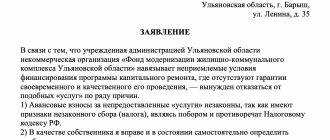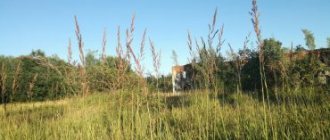DNT – what is it? Nowadays, many people, approximately seventy million citizens of the Russian Federation who live in settlements in different regions of the country, own suburban areas.
As a rule, they are combined to facilitate surveillance of the territory and ensure security.
The most common forms of such a community include SNT (can be deciphered as a garden non-profit partnership), DNP (dacha non-profit partnership) and DNT (dacha non-profit partnership).
What is DNT - explanation
DNT stands for dacha non-profit partnership. Absolutely anyone who wants to can buy such land. At the same time, you can purchase it for building a house on it, or as an already erected structure.
In essence, DNT is a cooperative created on a voluntary basis by land owners. The management of dacha plots is carried out by an appointed manager. DNT is a legal entity with its own charter, which describes the relationships of all its participants. The participants of the dacha partnership are its members, therefore they pay monthly membership fees. From the contributions made, a fund of funds related to DNT is created.
The Supreme Court decided who may not pay contributions to a dacha partnership
You don't have to use it, but you have to pay
In 2014, Irina Petrova* bought a plot of land on the territory of the dacha non-profit partnership “Korkinskie Prostori”, but did not join this organization. The partnership decided that the new owner must still pay fees for the use of DNP's common property, including its infrastructure.
At first, the DPP tried to get the money peacefully: Petrova was called and sent notifications. But the woman did not pay, so the partnership went to court. They justified their position by the fact that Petrova unjustly enriched herself: she kept 200,000 rubles for herself, which she had to give to the partnership. This amount is determined by the size of membership fees. They were approved by the general meeting of the partnership members, the plaintiff explained to the court.
Petrova claimed that she did not use this property. DNP did not provide the services that it is asking to pay for. Moreover, the defendant argued, she did not need these services at all. Despite this, the Krasnogvardeisky District Court of St. Petersburg ordered the woman to transfer money to the DNP. The defendant must pay for the maintenance of the partnership's common property simply because her property is located within that DNP.
Whether Petrova uses this property or not is not important, the district court decided. The absence of an agreement between the plaintiff and the defendant is also irrelevant, the first instance added (case No. 2 – 771/2019). The appeal and the first cassation agreed with this approach. Then Irina Petrova appealed to the Supreme Court.
VS: real expenses are important, not abstract contributions
According to the three judges of the Supreme Court, headed by Sergei Romanovsky, in order to recover unjust enrichment it is necessary to establish that Petrova had an obligation to pay the dacha partnership.
The Supreme Court decided what could be considered unjust enrichment
The Supreme Court noted that the dacha partnership did not prove what specific amounts it spent “in the interests of the defendant.” When calculating unjust enrichment, courts should proceed from the actual expenses of the plaintiff, and not from the amount of membership fees. Petrova is not a member of the partnership, which means that the decisions of the general meeting do not create obligations for her, the Supreme Court clarified and sent the case for a new appeal (No. 78-KG20-57-K3). The hearing in the St. Petersburg City Court is scheduled for April 20.
Dangerous precedent or unimportant act?
It is not clear from the judicial acts what the membership fees, which Petrova allegedly evaded, were used for, and whether they were spent at all, notes Evgeniy Zubkov, a lawyer in the dispute resolution practice of Infralex Infralex Federal Rating. group Arbitration proceedings (medium and small disputes - mid market) group Bankruptcy (including disputes) (high market) group PPP/Infrastructure projects group Land law/Commercial real estate/Construction group Digital economy group Antitrust law (including disputes) group Corporate law/Mergers and acquisitions (high market) group Family and inheritance law group Transport law group Pharmaceuticals and healthcare group Tax consulting and disputes (Tax consulting) group Tax consulting and disputes (Tax disputes) group Private capital group Criminal law. The situation when contributions are spent on repairing a road or water supply system—common property that the defendant cannot but use—is fundamentally different from the case when contributions are spent inappropriately, explains Zubkov. For example, to improve the garden plot of a specific member of a dacha partnership.
According to Zubkov, the approach of the Supreme Court is not flawless. The conclusion that the decision of the general meeting of the partnership does not create obligations for Petrova, who is not a member of this DPP, could become a dangerous precedent, the lawyer believes:
“This statement comes into some contradiction with Art. 5 and 14 of the law on gardening and horticulture by citizens. According to their meaning, the decision of the meeting to establish economically justified membership fees for the maintenance of public property is mandatory, including for persons who are not members of such an organization.”
The withdrawal of the Armed Forces can be used to dishonestly evade payment of membership fees, Zubkov warns.
At the station 5 of the same law is also referred to by Sergey Sergeev, head of practice in the field of housing and communal services, ecology and environmental management of the Moscow Bar Association "Arbat" Moscow Bar Association "Arbat" Federal rating. . “This norm came into force on January 1, 2019. So now the issue of collecting mandatory payments is resolved quite simply. And the position “I’m not a member of a partnership, I don’t care about anything”, as a rule, no longer works,” says the lawyer.
At the same time, he adds, partnerships in such cases do not have to talk about unjust enrichment. A claim for collection of arrears in payments for the maintenance of public property can also be satisfied, Sergeev believes. In his opinion, this definition of the Armed Forces should not be considered as a practical one.
*Name and surname have been changed by the editors.
- Ekaterina Korobka
- Supreme Court of the Russian Federation
- Civil process
Public property DNT
If DNT acquires property, it will subsequently be the joint property of all DNT participants. A DNT may include property in the form of fences and fencing, garbage containers, or a security and fire safety system.
All issues related to the work of the DNT are discussed and approved at general meetings composed of all participants of the DNT. The owner of the land may not be a member of the DNT on a personal basis and may not pay membership fees. But then you need to sign a personal agreement with DNT, in which you need to describe the procedure for using infrastructure facilities. You will still have to pay DNT for this.
Meeting of DNT participants
When collecting money for various projects, owners of summer cottages can decide for themselves whether to participate in them or not. This could be a variety of repair work, gas supply or drilling a water well.
DNT management
The non-profit association DNT has a special management system. DNT structure: chairman, board, members of the dacha partnership. The chairman can be any willing member of the partnership, who will be elected at a general meeting of members. When meetings are held, it is necessary to keep minutes in which all decisions made must be recorded signed by the members of the DNT. If the protocol is not drawn up, all decisions made can be easily challenged in court. Minutes of a meeting are an important legal document.
Purpose of the lands of the dacha partnership
According to the rules established by the law “On gardening, vegetable gardening and dacha non-profit associations of citizens,” the DNT organization is structured in such a way that land is taken for the construction of residential buildings.
In addition, the owner of the plot has the right to obtain registration.
Also, if necessary, it is allowed to erect various buildings for agricultural purposes on the territory, organize places for recreation, grow trees and bushes, berries, potatoes and all kinds of melons.
It should be noted: the owner of the plot is not obliged to build a house on it and register as a member of this partnership.
On common lands owned by a certain DNT, it is allowed to develop access roads and create various infrastructure facilities. Every decision regarding the use of common property must be made at special meetings where all members of the society must be present.
The results of such meetings must be recorded in the official minutes. Without this document, any actions of the chairman of the board, as well as its members, will be deprived of legal force, so they can be challenged in court without any problems.
Is it possible to buy a plot with a house in DNT with a mortgage?
Not everyone has the opportunity to build their own house on a summer cottage with their own funds. Often people want to buy a ready-made house with a mortgage. According to the law, there are no prohibitions on such a purchase, but there are some peculiarities in the registration of such property. Before buying a house in DNT, you need to check whether the ownership of the house is registered with Rosreestr and with the partnership.
Without an EGRN extract for the land plot and the house, the bank will not consider the property. The EGRN extract for the house must state that the house is residential and has no restrictions or encumbrances. It will be great if the owner of the land and house in DNT changes the purpose from DNT to individual housing construction. Banks easily issue mortgage loans for individual housing construction.
Individual management
DNT differs from some other forms of organizing dacha plots in that citizens are given the right to manage their land plots without being a member of this organization.
Individual business owners get the opportunity to operate the partnership’s infrastructure.
Payment for the provision of various tools and other agricultural devices must be made under an agreement that the owner of the site signs with the board of this DNT.
It should be taken into account: the difference between the amount of payments for the owner of a plot that is not part of the organization and the contribution of a member of the partnership can be quite large.
Is it possible to register in the DNT and how to do it?
It was possible to register with the DNT until January 2021, when the dacha amnesty was cancelled. Today it is also possible to register with the DNT, but through the court. This is explained by the fact that the concept of dacha now has no legal force. In our time, there are only horticultural and gardening associations.
We can assume that DNT belongs to a horticultural association; it is possible to build a permanent structure, but it will be very difficult to register in it. Such a plot must be located within the boundaries of a populated area, and all communications must be carried out to it, and the ownership must be registered with Rosreestr. Those who managed to register in such houses before 2021 – their right to registration is not canceled by the new law, but continues to apply.
Pros and cons of DNT
Benefits of DNT
- Low price for a plot of land than in a populated area;
- high probability of obtaining registration than, for example, in SNT;
- you can build a house without going through additional procedures and registrations, as in individual housing construction;
- you can use the common property of the partnership;
- small payments for utilities;
- DNT sites are protected
- have good infrastructure.
Disadvantages of DNT
high costs for connecting communications, which the partnership will not do for free. It will not be possible to use such an object as collateral in a bank.
The construction of a permanent house, its registration, registration of registration - all this is a very long-term process, associated with a huge bureaucratic paperwork.
If desired, the owner can purchase several neighboring plots of land in the partnership to conduct large-scale agricultural activities.
Advantages and limitations of DNT
Each owner of a land plot independently decides what status he wants to have - this means that he, at will, becomes a member of the DNT or not.
Attention! There is no catch to being a DNT member.
Its main advantage is that a person has the opportunity, if necessary, to use various agricultural implements and other tools, and seek help from the chairman or other members of this society.
An important advantage of membership in a dacha non-profit partnership is that a person does not have to worry about the safety of his property. In addition, if necessary, he can use the necessary tools without purchasing them.
However, there are also disadvantages: regular contributions and attendance at meetings are required.
How is DNT different from SNT?
SNT is a gardening non-profit partnership.
- SNT is intended for horticultural farming, as a result of which the land on SNT is more fertile than in DNT, which makes land in SNT more expensive than in DNT.
- In SNT it is prohibited to register; in DNT it is more possible to obtain registration at the place of residence.
- When you own land in SNT, you will independently carry out all communications at your own expense, and in DNT this will be handled by the board of the partnership at the expense of collected membership fees.
Where to buy a plot: in SNT or DNT? This choice depends on the motives for purchasing the land. If you want to build a permanent house on the site for living, it is better to choose DNT. If you want to farm and maintain a vegetable garden, choose SNT.
How does DNT differ from individual housing construction?
Individual housing construction – individual housing construction.
- Individual housing construction is carried out on the lands of settlements, and DNT on agricultural lands.
- The infrastructure will be more developed for individual housing construction. DNT does not include a lot of money for improvement, so individual housing construction plots are sold at a much higher price than DNT.
- Communications in DNT are carried out at the expense of general membership fees of the owners. In individual housing construction, communication costs are often already included in the cost of the site.
- It is impossible to transfer a plot of land on DNT into individual housing construction; this is only possible for the entire village, which, undoubtedly, is not a good idea.
- You can register in individual housing construction without any difficulties than in DNT.








